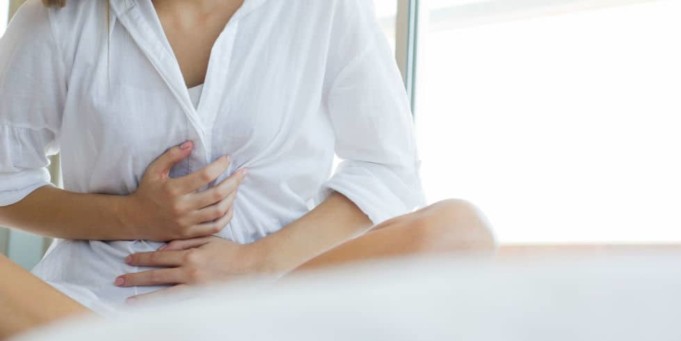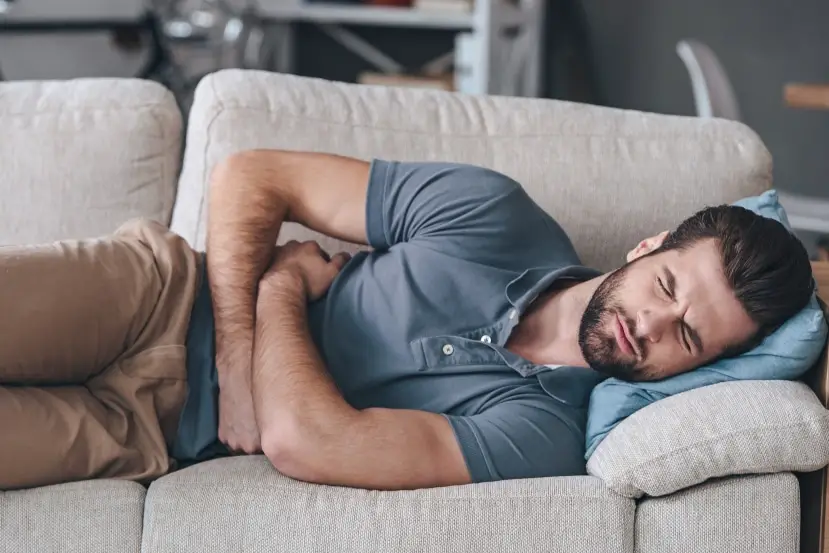Diverticulitis is a medical condition affecting the digestive tract. The condition can be painful and is associated with extreme pain in the lower left abdomen.
Learn more about this condition and various factors associated with this condition.
Key Takeaways
- Diverticulitis is mainly caused by consuming foods that are low in fiber
- Constipation is one of the prime causes of Diverticulitis
- Although, diverticulitis is mainly known to affect the large intestines, it can also occur in other parts of the digestive tract.
What is diverticulitis?
Diverticulosis is a condition that occurs when diverticula which are structures like pouches occur in the colon wall. In case these pouches get infected or swell up they lead to diverticulosis which in turn can be a very painful medical condition to deal with.
Diverticulosis primarily affects the digestive tract as the digestive tract protrudes through certain spots in the outer layer of the tract.
Diverticula commonly occurs in the large intestines, but they are not necessarily restricted to only the intestines and can occur even in other parts of the digestive tract.
Diverticulitis could be one of the reasons associated with severe pain that occurs in the lower part of the abdomen particularly in the left side. In some cases it could also occur with some rectal bleeding.
Diverticulosis is a curable condition, however the risk of a recurrence of the condition is always there. Hence, when it comes to the management of the disease there are two parts one being the disease itself and the second being the prevention of a recurrence of the disease.
What Triggers Diverticulitis?
The exact causes of diverticula are still unclear however one factor that is primarily associated with the occurrence of this condition is eating a low fiber diet. Apparently, lack of fiber in the body could lead to the occurrence of the sacs or diverticula.
Eating a diet that is rich in fiber along with adequate fluid intake helps in softening the stool which is easy to remove from the body.
A diet low in fiber can lead to bowel related issues like constipation. Constipation in turn leads to excessive pressure being placed on the colon system to pass the stools which could eventually be the cause of diverticula.
The condition worsens as the stool get clogged into the pouches or the diverticula leading to infections that could be extremely painful to deal with.
Are You At Risk of Diverticulitis?
- Insufficient fiber intake: There are some poeple who do not eat adequate fibers and largely consume processed foods. Such people are always at a risk of acquiring diverticulitis. Taking supplements of fiber or eating fresh fruits vegetables and grains that are rich in fiber is the best way to stay out of the risk zone. One should keep up their fiber intake to atleast about 20 to 25 grams of fiber a day that comprises of almost 5 servings of a mix of fruits, vegetables and other fiber rich foods.
- Constipation: Those suffering from chronic bowel conditions like constipation often are at a high risk of suffering from diverticulitis. Consptipation ends up putting excessive pressure on the colon muscles when passing motions. When this pressure is continuous then it ends up increasing the risks of diverticula in the colon system. Once the diverticula occur in the digestive tract, it increases the chances of bacterial infection as the stools accumulate within the diverticula causing swelling and infection in them.
- Being overweight: Obesity or being overweight can put you at a higher risk of suffering from diverticulitis. Those who are obese have a higher BMI as compared to the normal people. A higher BMI and increased waist size automatically causes bleeding and diverticulitis.
- Age Factor: As one ages, the body starts facing several issues with the bowel system including constipation. Constipation is very commonly seen in people above 60 years of age, thereby putting them at a high risk of diverticulitis condition.
What are the Symptoms of Diverticulitis?
Sudden or severe pain that occursin the lower left side of the abdomen is considered to be the first sign of diverticulitis. The pain is sharp and severe and can worsen with days. Other signs of this medical condition include:
- Pain and tenderness in the abdomen particularly in the lower left side of the abdomen.
- Nausea or vomiting
- Bowel disorders or constipation
- High grade or low grade temperature
- Bloating, gas or acidity
- Loose motions or diarrhea
- Changes in appetite
- Bleeding from the rectal region
When Should You See Your Doctor?
You would need to visit your doctor for a diverticulitis test as soon as you experience abdominal pain that is severe and unusual. The important sign of diverticulitis is that the pain is felt in the left side on the lower abdomen.
Passing blood in the stools or sudden nausea and vomiting can also be warning signs that would require immediate medical intervention.
The symptoms can also be of other medical conditions and not necessarily diverticulitis. However, since these symptoms are not normal, they need to be immediately discussed with a doctor to rule out diverticulitis or other medical conditions.
Diagnosing Diverticulitis
The diagnosis of Diverticulitis includes first discussing your symptoms and other medical conditions with the doctor. The doctor may specifically aim at getting details about your diet, bowel patterns and fluid intake.
The doctor performs several physical checkups including checking your abdomen for the pain. The doctor may also suggest certain laboratory tests including checking for blood in your stools. Blood test may be recommended to see in case your white blood cells are higher than the normal range as it could be indicative of an infection.
A CT Scan is helpful in locating the exact location and extent of the infection that is causing diverticulitis.
People suffering from heavy rectal bleeding may be recommended a procedure known as angiography that helps in identifying the exact source and cause leading to the bleeding.
Other imaging tests like X-rays and ultrasound may also be suggested as a part of the diagnostic procedures.
Can Diverticulitis Get Complicated?
Sometimes diverticulitis can result in some serious medical complications that could be difficult to treat. Most of these complications arise due to a tear or perforation that occurs in the intestinal walls.
In case this happens the waste materials that ideally should be excreted out of the body can leak into the abdominal region that surrounds the intestines. This can further create the following issues:
- An infection in the abdomen which is known as Peritonitis and is extremely painful
- Abscesses which are also a form of infection in the abdomen
- Blockages and obstructions in the intestines causing difficulty in the normal digestion process
If the doctor diagnoses an abscess, then the fluid from the abscess may need to be removed through a needle insertion on to the infection.
In certain cases a surgery may be required to get rid of the abscess and that may require a part of the colon to be removed.
In case the infection spreads to the other parts of the abdominal region, then a surgery may be suggested to clean up the abdomen and remove a part of the damaged colon.
In case Peritonitis is not treated on time, it can be fatal due to the high chances of the infection spreading.
Can Diverticulosis be Treated?
People suffering from diverticulosis that does not show any specific symptoms may not require intense medication or treatments.
They are asked to bring about some dietary changes that includes consuming a lot of fiber to prevent complications from arising out of diverticula. Antibiotics may be administered for more serious issues concerning bacterial infections.
One should not consume laxatives on their own to treat the constipation as long term and frequent usage of laxatives is also not good for health and can cause wear and tear.
The doctor may recommend a specific line of treatment for the condition depending upon other health factors of the patient.
Author Bio:
 Matt Bailey is a noted writer, content marketer and Social Strategist at FindaTopDoc. Find a best Local Doctor by Specialty and Insurance.
Matt Bailey is a noted writer, content marketer and Social Strategist at FindaTopDoc. Find a best Local Doctor by Specialty and Insurance.













